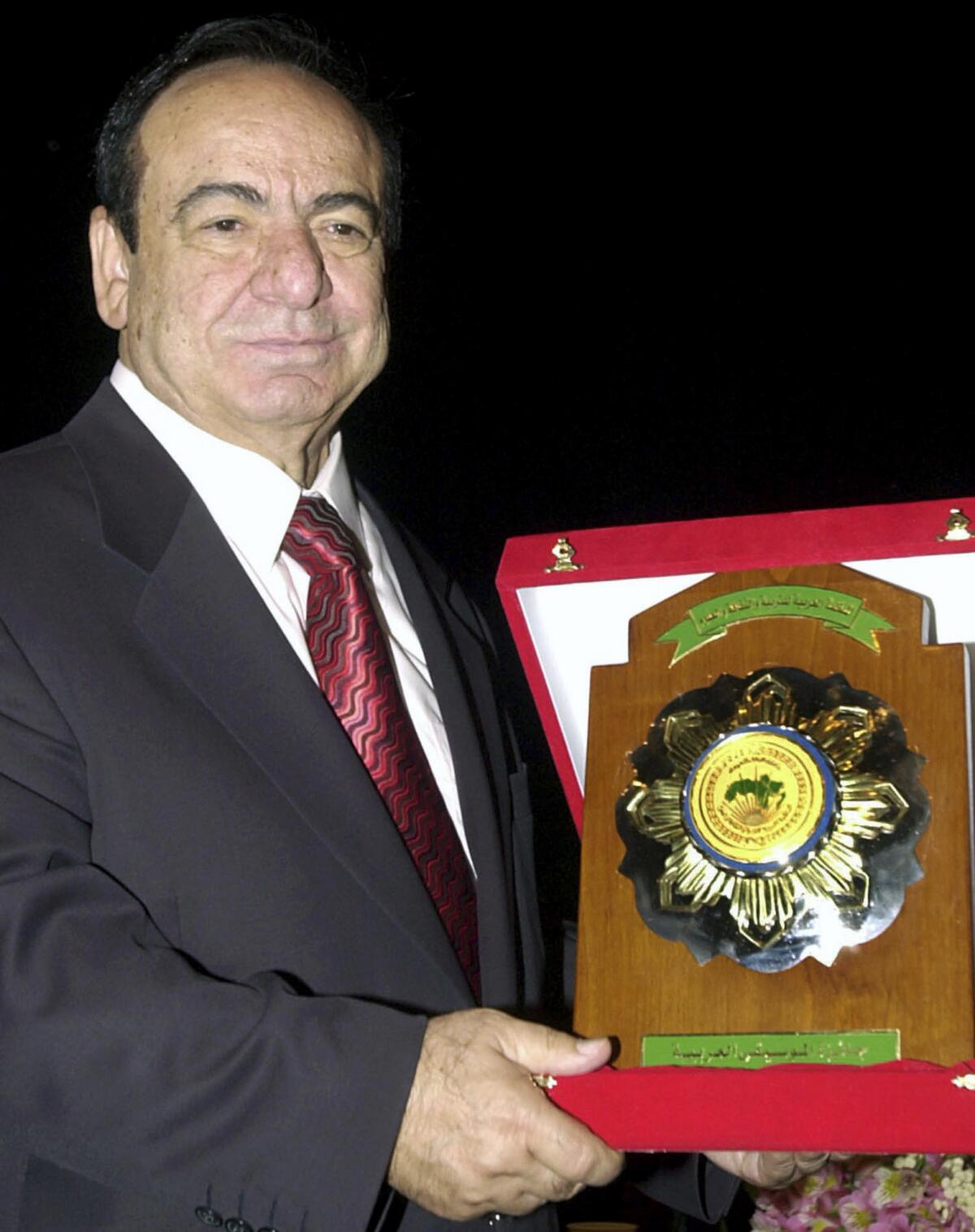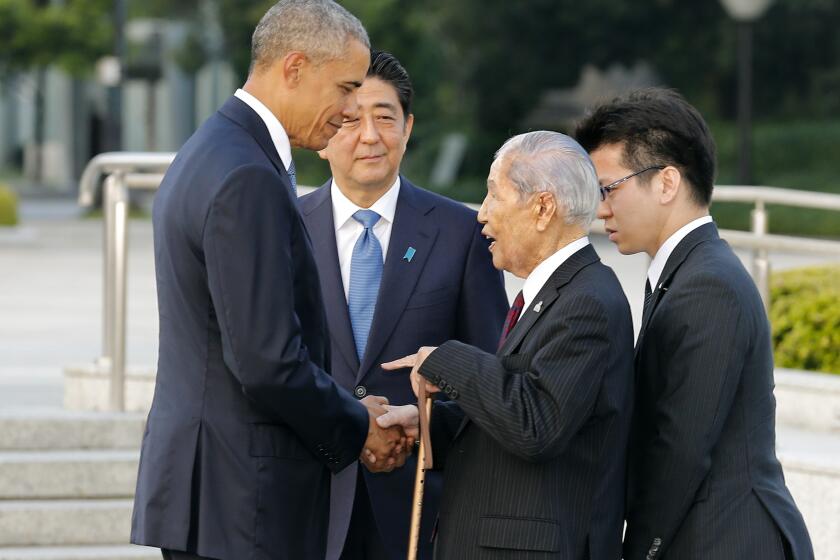Legendary Arab singer Sabah Fakhri dies at 88

BEIRUT — One of the Arab world’s most famous singers, Sabah Fakhri, who entertained generations with traditional songs and preserved extinct forms of Arabic music, has died, Syria’s government said Tuesday. He was 88.
The cause of death was not immediately clear.
Born Sabah Abu Qaws in the Syrian city of Aleppo in 1933, Fakhri got his stage name as an adolescent when he started performing. He soon rose to fame to become one of the Arab world’s legendary tenors and one of its exceptionally charismatic entertainers.
Fakhri was a world-class Tarab singer, an Arabic form of music associated with emotional evocation that could last for hours.
Onstage, Fakhri would engage the audience and sway to the music almost in a trance, turning the lyrics of his songs, often in classical Arabic, into refrains that the audience could easily sing along with him.
He once performed for 10 hours without a break in 1968 at a concert in Caracas, Venezuela, which earned him an entry in the Guinness World Records.
“Never give up” was Hiroshima survivor Sunao Tsuboi’s trademark phrase, especially for his fight for a world without nuclear weapons.
Throughout his career, Fakhri preserved and popularized traditional forms of Arab singing and music, including Quddud Halabiya, native to his hometown, Aleppo.
He once told his interviewers that his family recognized the power and distinctiveness of his voice when he was only a baby.
“I started singing when I was born,” Fakhri told an interviewer for Egyptian TV CBC. A family member used to pinch him to hear him cry because “he liked the sound of my crying.”
He memorized the Quran when young and began reciting in mosques, a common path for a number of musicians and singers in the Arab world. Because of his powerful voice, Fakhri briefly worked as a muezzin — the person who calls the faithful to prayer — in a mosque in Aleppo.
“Quran is the great school for performance and good and clear pronunciation,” he said in the TV interview aired in 2014.
Fakhri studied music and singing in Aleppo and Damascus, the Syrian capital. He earned various honors in the Arab world and was head of the Syrian Artists Syndicate.
Fakhri is survived by four sons, including Anas, who is also a singer.
More to Read
Sign up for Essential California
The most important California stories and recommendations in your inbox every morning.
You may occasionally receive promotional content from the Los Angeles Times.











